Nominally, this was a programme of three symphonies. The first, though, sounded like music re-cut and pasted from a very British film and the second was a suite, albeit impressively reworked, from an opera. The real deal, Brahms’s Third, is a very personal masterpiece, more inward than outward looking, and that, too, may have been why Mirga Gražinytė-Tyla’s latest Prom with her City of Birmingham Symphony Orchestra was less electrifying than its predecessors.
Would “the Gipps Second Symphony” have made a reappearance had its composer been called Ralph and not Ruth? She is remarkable for her very proactive place in the history of 20th century British music, but not, surely, for music itself. Though sprucely conducted and phrased, her ideas in this symphony are cut-price Vaughan Williams (one is reminded, incidentally, that he did actually use music from a film in his Seventh Symphony, but the score for Scott of the Antarctic is remarkable in the first place). You may think it's all too easy to reach for the "sounds like.." comparison, but when there's real individuality to be found, that isn't necessary.
The loose narrative of Gipps’s experience in the Second World War – the work was composed in 1945 – brings little conflict; when a side-drum starts up an alla marcia after the main business of the opening sequences, you think you might be in for a Nielsen or Shostakovich scrap, but it’s only jolly soldiers going off to war. The Adagio is sorrowful and brief before a predictable affirmation; compactness is this one-movement symphony’s chief virtue. But that’s not enough. The previous evening, I’d caught up online with the last concert of the Estonian Festival Orchestra at the Pärnu Music Festival, which ended with Swedish composer Berwald’s Fourth (“Naïve”) Symphony, composed exactly a century before the Gipps. It teems with happy personality and quirkiness; that's "modern" for you. There’s nothing original about this justly neglected work at all, though it was right for the CBSO to honour a symphony it premiered.
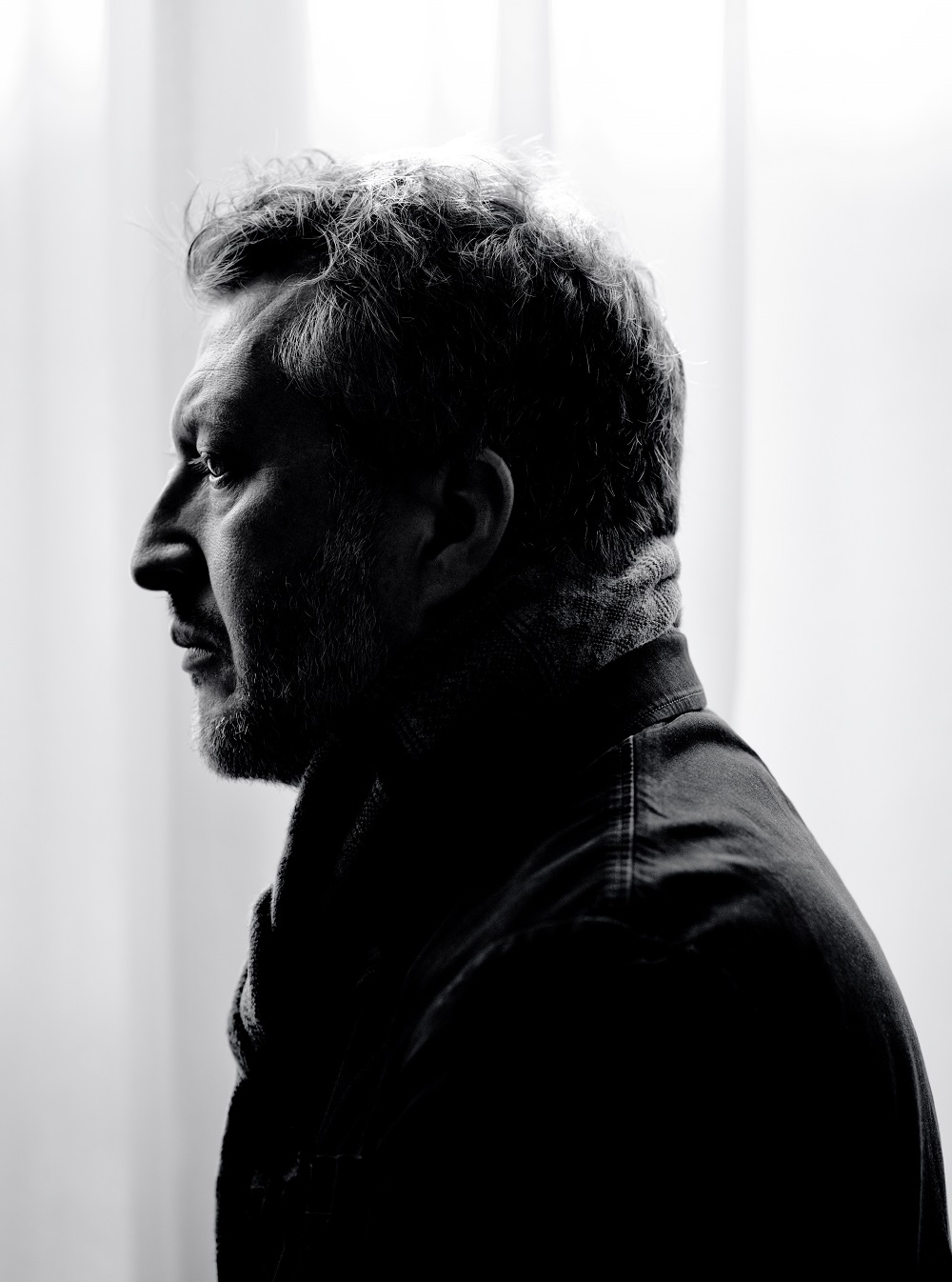 Thomas Adès (pictured right by Marco Borggreve) continues to forge arresting sounds and to master a sense of dark unease even beneath glittering pastiche. His opera The Exterminating Angel, bravely taking Buñuel’s surreal thriller of a film as its subject, is compellingly original, far more so than the relatively conservative take on Shakespeare’s The Tempest; the eponymous figure stalks bourgeois guests trapped for no palpable reason in a big house after a dinner party. Extracting music from it for concert purposes seemed as promising as Birtwistle’s work on Gawain’s Journey; in both cases the often hideously awkward, too-instrumental vocal writing can be forgotten.
Thomas Adès (pictured right by Marco Borggreve) continues to forge arresting sounds and to master a sense of dark unease even beneath glittering pastiche. His opera The Exterminating Angel, bravely taking Buñuel’s surreal thriller of a film as its subject, is compellingly original, far more so than the relatively conservative take on Shakespeare’s The Tempest; the eponymous figure stalks bourgeois guests trapped for no palpable reason in a big house after a dinner party. Extracting music from it for concert purposes seemed as promising as Birtwistle’s work on Gawain’s Journey; in both cases the often hideously awkward, too-instrumental vocal writing can be forgotten.
Yet in spite of the Death-Angel’s subterranean lourings, a pattern not easily discerned, the four movements of the new “Symphony” feel like four unconnected mood-pictures from the opera. Prokofiev thought of calling his Third Symphony at one point “Fiery Suite”, having taken material from his infernal opera The Fiery Angel still wrapped in its creepy, cabbalistic dress. But that’s symphonic throughout, while each of these movements entertains and mildly disconcerts, the effect remains suite-like.
The brilliant Spanish inflections of the chaconne in “Entrances” outstay their welcome, though the queasy descent to the lower strings at the end is a standout. Extractable, certainly, is the double-side-drum-laden apocalyptic assault of the “March”, based on ritual drumming from the town of Calanda. Detached from its dying-lovers context, the “Berceuse” seems too vague in its disquiet. “Waltzes” is a brilliant composite, Ravel’s La Valse decomposing from the start, with a bewitching lullaby dropback before the final whirl into the abyss. All sounds gloriously rendered by the CBSO and authoritatively mastered by Gražinytė-Tyla, it’s a macabre entertainment, but without the depth it rseems to strive for – that we’re still awaiting from the prodigious composer. This was the second performance; the world premiere took place in Birmingham the night before.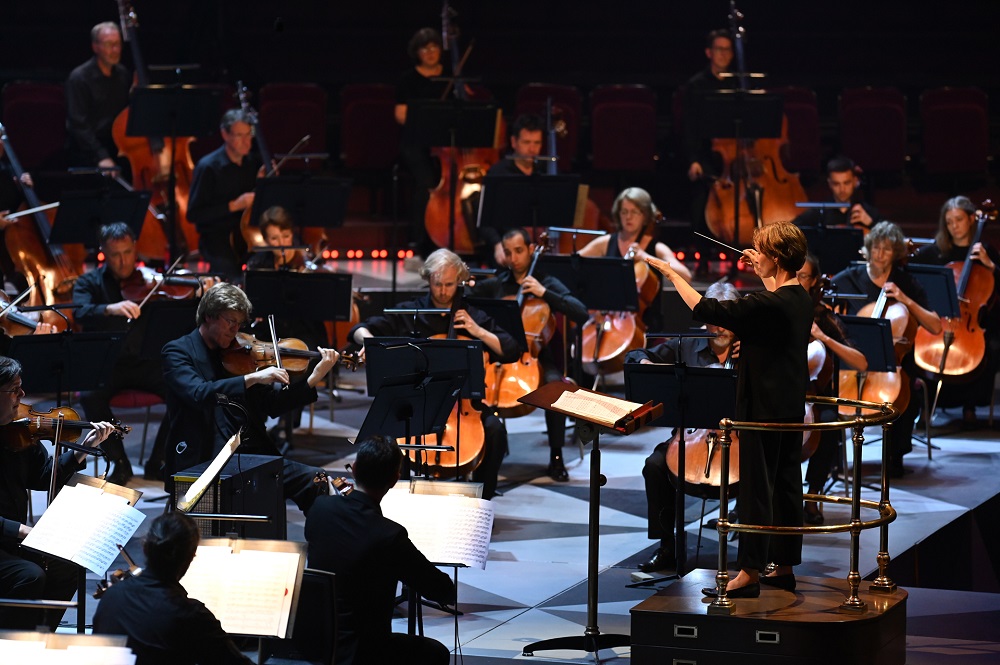 This Brahms Third bewitched in its inner movements; Gražinytė-Tyla found the perfect calm flow for both, took the lovely colours ever more hypnotically into another world – she would be right, surely, for the introspective side of the Elgar symphonies – and let her players sing their hearts out. That was reassuring after a first movement which only eventually flew, which needed more grounding and – from where I was sitting in the Albert Hall – better blending of strings and brass. Intrusive lighting fought against the necessary mood too: really, blood-red for Brahms? It feels as if too much this year is geared towards online viewing: a little visual help doesn't go amiss, but they've gone too far in 2021.
This Brahms Third bewitched in its inner movements; Gražinytė-Tyla found the perfect calm flow for both, took the lovely colours ever more hypnotically into another world – she would be right, surely, for the introspective side of the Elgar symphonies – and let her players sing their hearts out. That was reassuring after a first movement which only eventually flew, which needed more grounding and – from where I was sitting in the Albert Hall – better blending of strings and brass. Intrusive lighting fought against the necessary mood too: really, blood-red for Brahms? It feels as if too much this year is geared towards online viewing: a little visual help doesn't go amiss, but they've gone too far in 2021.
Surely the opening is the most difficult to conduct of any symphony: how to nail that tense and release reflex, that rolling mix of happiness and sorrow? It didn’t quite come off here, and our conductor's symmetrical semaphoring with both arms didn't seem to fit with what we were hearing (musicians find the technique unorthodox, but it usually works). Lyrical counterthemes in both outer movements could have done with a bit more air, even better articulation – though the venue makes that difficult; the final, recollected-in-tranquillity violin statement of the opening idea couldn’t be heard, only the reiterated F major chords closing the work. Admirable of Mirga, all the same, to highlight so sensitively Brahms’s brown studies and to choose a non-flashy pillar of the repertoire for a return to the Proms which merited some reflection.




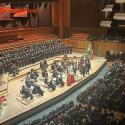







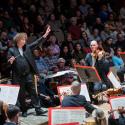
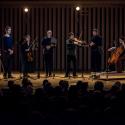
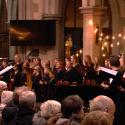
Add comment